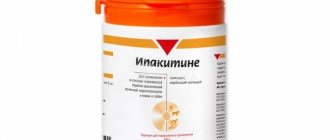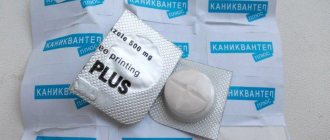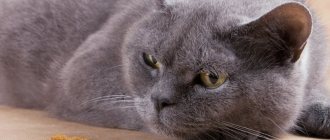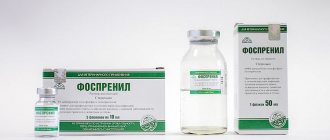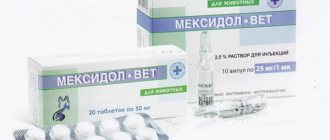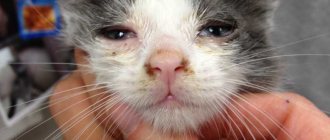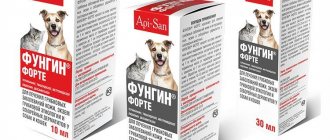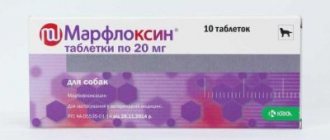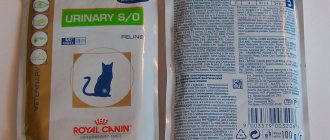Pets, unfortunately, just like people, are susceptible to various diseases. Only they cannot tell where exactly it hurts, and loving owners notice from the cat’s behavior that something is wrong with their pet. Kidney disease in cats is one of the most common and treatment is long and difficult. But thanks to the medicine Ipakitina for cats, it is possible to fight both already diagnosed kidney disease and use it for preventive purposes. It should be given to your cat according to the instructions for use or as prescribed by a veterinarian. Moreover, both veterinarians and cat owners trust this drug. But what kind of medicine is this? We should understand it better.
Pharmacological action
The action of Ipaketin is that calcium carbonate has an effective effect on food particles, linking their phosphates with each other. At the same time, the bioavailability of phosphates becomes lower, and chitosan cleanses the entire body of toxins. When treating cats with Ipakitine, the level of uremic toxins and urea in their bodies decreases. The level of creatinine in the blood serum also decreases. As a result, the cat's kidney function becomes much better.
Cholesterol levels in a cat's blood are reduced by binding bile acids in the intestines, where chitosan performs functions similar to those of fiber.
Only a minimum of chitosan is digested, everything else is excreted in feces practically unchanged. Calcium carbonate is excreted from the cat's body through the large intestines and organs of the genitourinary system.
Composition and release form of the drug Ipakitine
Ipaquitine for cats is produced by the French company Vetoquinol SA in the form of a cream powder, which is packaged in plastic jars of different capacities (50, 60, 150, 180 and 300 g). The kit includes instructions for use and a measuring spoon containing 1 g of the drug. It does not have a specific aroma or taste.
Ipakitine contains 2 active components:
- Chitosan. This substance is obtained from the shells of crayfish. It acts for about 8 hours, reduces the concentration of cholesterol and creatinine, and increases the level of hemoglobin in the blood. Chitosan is not absorbed by the animal's body, but is completely excreted in the feces.
- Calcium carbonate. The substance stabilizes and restores the proper exchange of phosphorus and calcium in the animal’s body.
Lactose is used as an excipient. All components are natural - the drug is safe for animals.
Ipakitine was developed and produced by the French company Vetokinol S.A. (Vetoquinol, SA). Ipakitine is produced in the form of a cream-colored powder, packaged in plastic jars of 60 and 180 grams. The plastic lid serves both to hermetically seal the container with the drug and to control the first opening of the package.
The composition of Ipaquitine reflects the French tendency towards naturalness and is represented by ingredients of natural origin. 100 g of product contains:
- chitosan, which is a polymer substance of natural origin, isolated from chitin, which is part of the shells of crustaceans - 8 g;
- calcium carbonate - 10 g;
- lactose - up to 100 g.
Ipaquitine is available in jars of 180 and 60 grams
Ipakitine is used as part of the complex treatment of chronic renal failure in cats.
Ipakitine is a phosphate binder, a means involved in binding phosphorus from food. In case of renal failure, the level of phosphorus in the blood increases due to a delay in its excretion by the kidneys, since this is the only route for the release of phosphorus. There is a natural balance between phosphorus and calcium, and an increase in phosphorus levels leads to a decrease in calcium levels.
The parathyroid glands react to low calcium levels by releasing parathyroid hormone, which promotes the rapid leaching of large amounts of calcium ions from the bone tissue of the skeleton, while excess calcium in the form of crystals of its salts precipitates in the tissue, causing dystrophic changes in them - calcification.
READ Dermatitis in cats: symptoms and treatment photos
Other substances also take part in the regulation of phosphorus-calcium metabolism, but it has been found that it is the increase in phosphorus levels, regardless of other factors, that increases the formation of parathyroid hormone, which becomes uncontrollable with the development of the disease. All tissues are susceptible to calcification, most often:
- cardiovascular system - both the heart itself and blood vessels are affected, especially the aorta; vascular calcification causes the development of a persistent increase in blood pressure, resistant to the effects of drug therapy, and also predisposes to the development of thrombosis. The risk of heart attacks, strokes, and thromboembolism increases - when a detached blood clot blocks the lumen of a vessel and stops blood flow; all these conditions pose a direct threat to the life of the pet;
- soft tissues in the joint area - this reduces mobility in the joints, and movements become painful;
- skin - calcium salts cause very severe itching.
The leaching of calcium from bones leads to a decrease in their strength, over time this leads to deformation of the bones, heterogeneity of their structure and can even cause pathological fractures.
Modern researchers give parathyroid hormone a leading role in the formation of uremic intoxication, since in addition to leaching calcium salts from bones and depositing them in tissues, increased secretion of parathyroid hormone causes a number of negative phenomena that complicate the course of renal failure:
- cardiovascular system: increased blood pressure;
- development of uremic or effusion pericarditis;
- chronic heart failure;
- increased intraocular pressure;
- neuropathy;
By binding dietary phosphorus, Ipakitine prevents a decrease in serum calcium levels and, consequently, reduces the activity of parathyroid hormone in the parathyroid glands. Since the calcium contained in Ipakitine, which has not reacted with dietary phosphates, is absorbed from the intestinal lumen, it also helps to increase serum calcium levels;
Chitosan contained in Ipaquitin reduces the level of urea and indoxyl sulfate, which improves kidney function and causes a decrease in serum creatinine.
Contraindications for use
Ipakitine has no contraindications for cats as such. This is all due to the fact that the medicine contains only natural substances that do not adversely affect the animal’s body.
The instructions for use do not contain data on the deterioration of the cat’s well-being as a result of taking the powder.
Some animals cannot digest lactose, so it is theoretically possible that an allergic reaction may occur. You should stop taking the medication if your pet experiences general weakness, diarrhea, bloating, or other problems with the functioning of the digestive system.
Monitor the expiration date of the medicine and do not use the drug after it has expired.
The use of powder is not a reason to refuse other medications, but you should still consult your veterinarian about whether some components are compatible or not.
Kidney diseases, if not treated in a timely manner, lead to serious consequences and even death, so the treatment process should be taken very seriously and follow all the instructions of the treating veterinarian.
general description
The developer of the drug, which has no analogues throughout the world, is the French company Vetokinol.
Ipaquitine is a powder intended for oral use. It is characterized by a white or cream color. The medicine contains components that do not dissolve in water. Therefore, the powder is usually not mixed with water or other liquids before use. For packaging, jars with screw caps made from safe polymers are used. The package size can be different - 50, 60, 150, 160 and 300 g. Since the drug is available in cans of different sizes, it is easy to choose a package of the appropriate size depending on the weight of the animal and the duration of treatment.
The medicine can be stored for 1.5 years from the date of production. There is no need to observe special storage conditions. You can place a jar of powder in a veterinary medicine cabinet or on a cabinet shelf, but place it away from feed and food. Storage temperature should be between 15 and 25 degrees Celsius.
Instructions for use of Ipakitine
Typically, a veterinarian prescribes the drug to cats twice a day - morning and evening. The powder is added to both dry food and canned food.
The dosage is calculated based on the weight of the animal: for every 5 kg of its weight - 1 scoop of powder.
If the cat eats dry food, then the powder is introduced into it as follows:
- pour a little of the food with a small amount of boiled warm water,
- mix it with the required amount of Ipaquitine powder,
- put the soaked food into the bulk of the food and mix well.
Everything is easier with canned food. The powder is simply poured into the prepared mixture for feeding the cat and mixed well.
The course of treatment lasts from 3 months to six months (depending on the individual characteristics of the body, as well as the severity of the disease). For prevention purposes, the powder is prescribed for one to one and a half months.
When taking Ipaquitina for cats, you need to make sure that they have constant access to water and the right amount.
If symptoms appear that indicate individual intolerance to the components of the drug, its use should be stopped immediately.
In special cases, the veterinarian may prescribe a course of treatment with Ipaquitina for a longer period of time, or advise a second course of treatment after a certain time.
Cats generally eat their favorite food just as well with the powder as without it because the powder doesn't have any off-putting taste or odor.
Ipakitine for cats does not require abstinence from taking other medications, so if necessary, the cat owner does not have to carefully select the appropriate medications. There are no special precautions required, it is only important to observe hygienic measures, as when working with any medications for pets.
This drug should be kept away from food and children.
Mechanism of action of the drug
According to the mechanism of action, Ipakitine is a combination drug. The effect involves both chitosan and calcium carbonate.
A large number of amino groups in the composition of the huge polymer molecules of chitosan create hydrogen bonds that reliably hold captured heavy metals, radionuclides, as well as various toxins of organic origin. The main benefit of chitosan in chronic renal failure is the capture and irreversible binding of indole and urea.
Indole is formed from the essential amino acid tryptophan with its participation in the metabolism of intestinal flora. When passing through the liver, indole is converted into indoxyl sulfate, which, when contained in normal quantities, performs an antioxidant function, but if not excreted by the kidneys, it accumulates and causes harm:
- has a direct damaging effect on renal tissue, causing processes of inflammation and fibrosis - proliferation of connective tissue, accelerating the death of nephrons and causing the progression of renal failure;
- participates in the formation of vascular lesions, causing damage to the endothelium - the inner lining of the vessel, and also prevents the restoration of both the endothelium and smooth muscle cells of the vascular wall. This leads to calcification of the vessel wall, which becomes hard, rigid and unable to respond to regulatory signals by changing the lumen of the vessel, which is necessary for adequate blood supply to the tissues. A damaged vascular wall causes the formation of a blood clot;
- in experiments on rats caused reversible fibrosis of the lungs, leading to thickening of the walls of the alveoli and interfering with the transport of water molecules.
READ Ipaketin for cats effects on the body instructions for use analogues
This is not a complete list of the “atrocities” of this molecule; the study of the toxic effects of indoxyl sulfate continues. But the existing data were enough for scientists to classify this compound as a risk factor for mortality in chronic renal failure. Moreover, since indoxyl sulfate binds to protein, it is difficult to remove even during hemodialysis, and the role of intestinal sorbents in reducing the content of this substance, including chitosan, is even more invaluable.
Additional benefits of using chitosan include:
- binding and removal of bile acid molecules from the lumen of the digestive system, reducing the level of cholesterol formed from them;
- increased hemoglobin due to improved kidney condition and increased production of erythropoietin;
- It is a ballast substance, stimulates intestinal peristalsis, and prevents the development of constipation.
Calcium carbonate, which is part of Ipakitine, performs the following functions:
- binds phosphorus ions, participating in the normalization of phosphorus-calcium metabolism;
- helps reduce systemic acidosis (a shift in the acid-base balance to the acidic side) due to its alkalizing effect.
A small part of chitosan is metabolized, but the main part is excreted by the intestines along with absorbed toxins. Some calcium ions are released by the intestines, and some by the kidneys.
Ipakitine is classified as a low-hazard compound based on the degree of impact on the body.
The lid of the package with Ipakitine ensures tightness and control of the first opening
Reviews
Vladimir: When I began to notice that the cat was drinking a lot, I became very wary. Since I had never noticed such behavior in him before. And when my pet stopped coming to the food bowl, that’s when I decided to seek help from a veterinarian. The diagnosis was completely unexpected - kidney failure, because my baby is only 5 and a half years old. The veterinarian gave Ryzhik stage 3, this diagnosis means that he has no more than a year to live. I started giving him the drug ipakitina 2 months ago, after a week of taking it, improvements became noticeable, as the cat began to eat. Now we continue treatment, and I believe that the drug will be able to prolong the life of my pet.
Anastasia: The drug Ipaketine has shown itself to be effective; it perfectly removes the symptoms of the disease and allows you to put the disease into remission. Although the drug is quite expensive, I am sure that the life of my pet is much more valuable. No side effects were identified over a long period of use.
Reviews about the drug
Unfortunately, we sounded the alarm late and took the cat to the doctor when the disease was already at the fourth stage - creatinine reached almost 600. The veterinarian prescribed several medications, including Ipaketin. We diluted the powder with warm water and gave it to the cat from a syringe, since she ate very poorly and there was no point in mixing the medicine with food. The drug is very good - it extended our pet’s life by six months, and without therapy she would hardly have been able to survive more than a month.
Tatiana
In combination with other medications, Ipaketin helps achieve long-term remission and keep urea levels under control - I can see this from the results of tests that the cat has to take every month. But the downside is that my pet categorically does not like the drug - the animal spits and refuses to eat. I adapted to pouring medicine into the cat’s mouth using a syringe, but this is still additional stress.
Maria
If we talk about kidney failure, Ipaketin is very good - it helps to cope with the symptoms of the pathology and achieve remission. With its help, we managed to extend the cat’s life by as much as 8 months, although the doctor warned at the beginning of treatment that the animal was dying. But I want to note that in advanced stages of chronic renal failure, the drug alone will not cope - it can only help the pet in combination with IVs, which will have to be continued until the very end.
Victoria
I can say that the drug does not have miraculous properties; it is prescribed more to stabilize the animal’s condition. However, while taking Ipaketin, my cat’s condition has noticeably improved - his appetite has appeared, and the frequency of visiting the toilet has normalized. By the way, it is very important to ensure that the animal always has clean water in its bowl, since it will want to drink much more often than usual. The drug is not cheap - I paid 1050 rubles for a jar of 180 grams, but I think that the life of a pet is still much more expensive.
Olga
Last summer I noticed that my cat’s hair began to shed, and she herself became much less mobile, although she usually ran around the apartment all day long. I took her to the vet, he took all the tests and prescribed Ipaketina. I gave the medicine to the cat every day for three months, added it to the food in the morning and evening, measuring the required amount with a special spoon from a jar. The cat felt noticeably better. The drug definitely helped.
Alexandra
Contraindications and side effects
Ipakitine for cats has no contraindications, since it contains only natural substances. The exception is individual intolerance to the components of the drug. In this case, the veterinarian may decide to reduce the dosage of the drug rather than stop it completely.
There are no side effects when taking Ipaquitine in cats. Occasionally, at the beginning of the course of treatment, your pet may experience nausea and vomiting, but these symptoms go away on their own and quickly enough.
Some cats are lactose intolerant and may have an allergic reaction to the drug for this reason. If your animal exhibits symptoms such as diarrhea, bloating, and general malaise, you should stop giving it the medicine and take it to a veterinary clinic.
Course of treatment and dosage
According to the instructions, Ipaketin for cats is prescribed orally in a dosage of 1 g of the drug per 5 kg of animal body weight. In some cases, the dose can be adjusted by the veterinarian depending on the general condition of the furry patient and concomitant diseases.
The animal should be given medicine twice a day, morning and evening , adding it to wet store-bought food, soups, pates or cereals. If the cat receives only dry food, it is necessary to soak a small amount of it in warm water until it swells, mix with the drug and add to the main portion.
If the animal’s condition is severe and it refuses to eat, Ipaketine powder is diluted with warm water in a ratio of 1:4, and then poured into the cat’s mouth with a small syringe without a needle or a pipette.
For newborn babies, the medicine is additionally diluted with a dry formula that replaces mother's milk. The course of treatment for animals with stage 1-2 chronic renal failure is usually 3 months; for more severe forms of pathology, therapy can last more than six months.
Chronic renal failure is a fairly common disease, most often resulting in death.
In order to prevent such a development of events, you need to promptly contact a specialist who will conduct the necessary research and prescribe adequate treatment, including taking Ipaketin.
However, it is necessary to understand that at the thermal (last) stage of renal failure, the drug can only reduce the cat’s suffering and somewhat prolong its life. He is unable to save a dying animal.
Comparison with analogues
If desired, this medicine can be replaced with drugs that have a similar effect on the pet’s body.
Pronephra is available in the form of a suspension. Its composition is almost identical to Ipaquitina, but in addition to 2 active components it contains polysaccharides and oligopeptides that help maintain the normal structure of the kidneys.
Renalcin is available in liquid form with a dispenser. It contains the substance lantarenol, which binds phosphorus in the gastrointestinal tract, and kaolin, which removes toxins that accumulate in the pet’s body during renal failure.
Ipakitine for cats is an effective drug with virtually no contraindications or side effects. It helps to improve the condition of a pet with chronic kidney failure, without overloading the cat’s body, and can also be prescribed by a specialist for prevention to an animal prone to such an illness.
There are no direct analogues to Ipakitina that have the same composition. It makes sense to consider Ipakitine as part of the group of phosphate binders.
